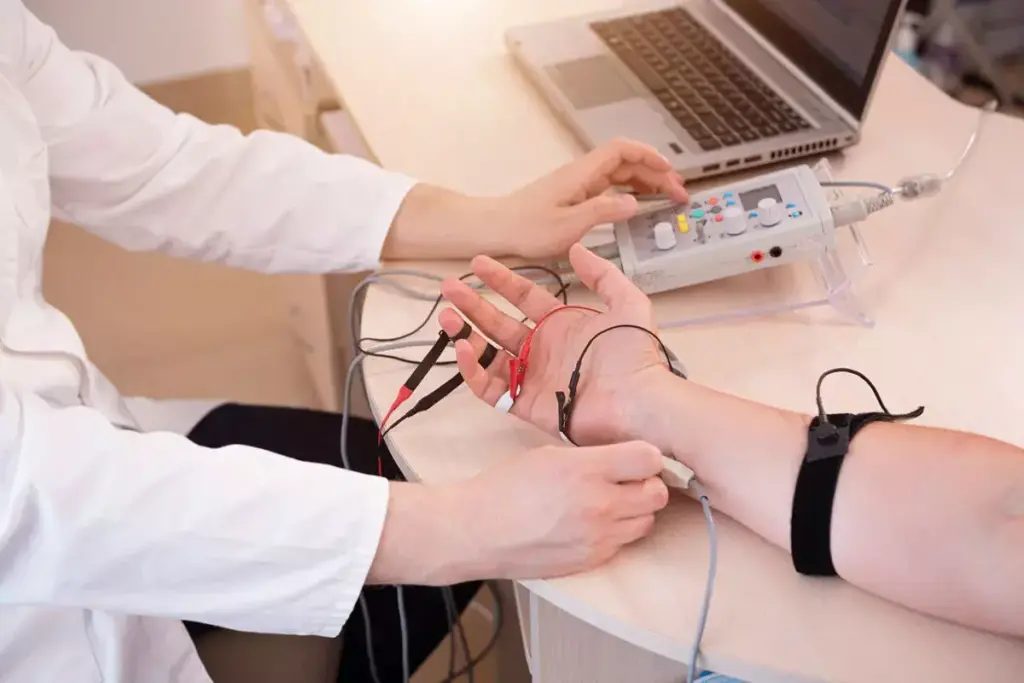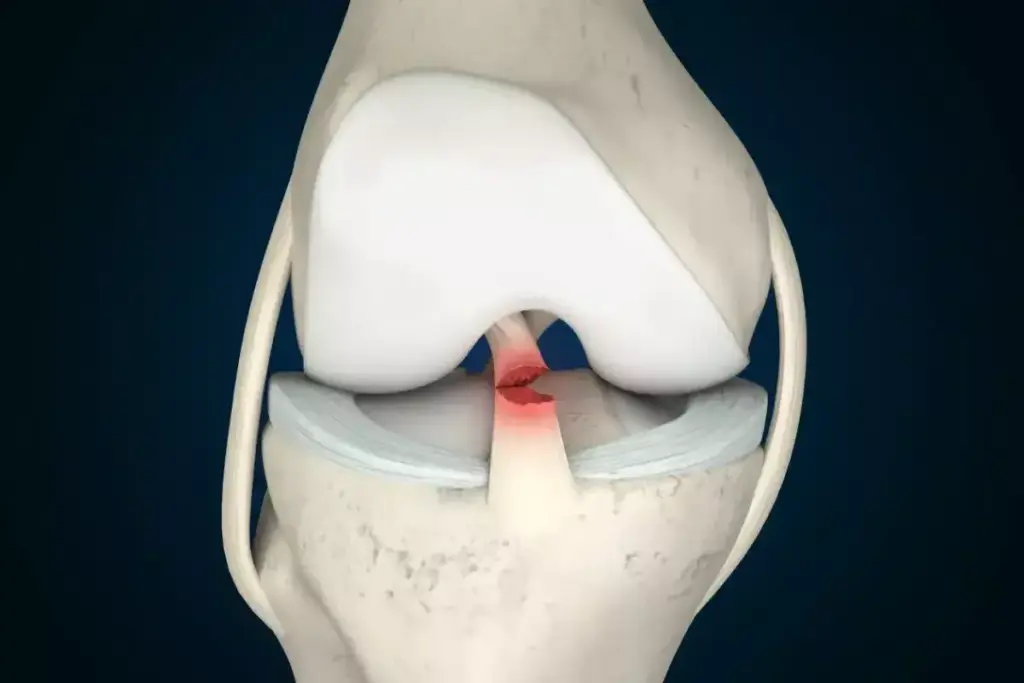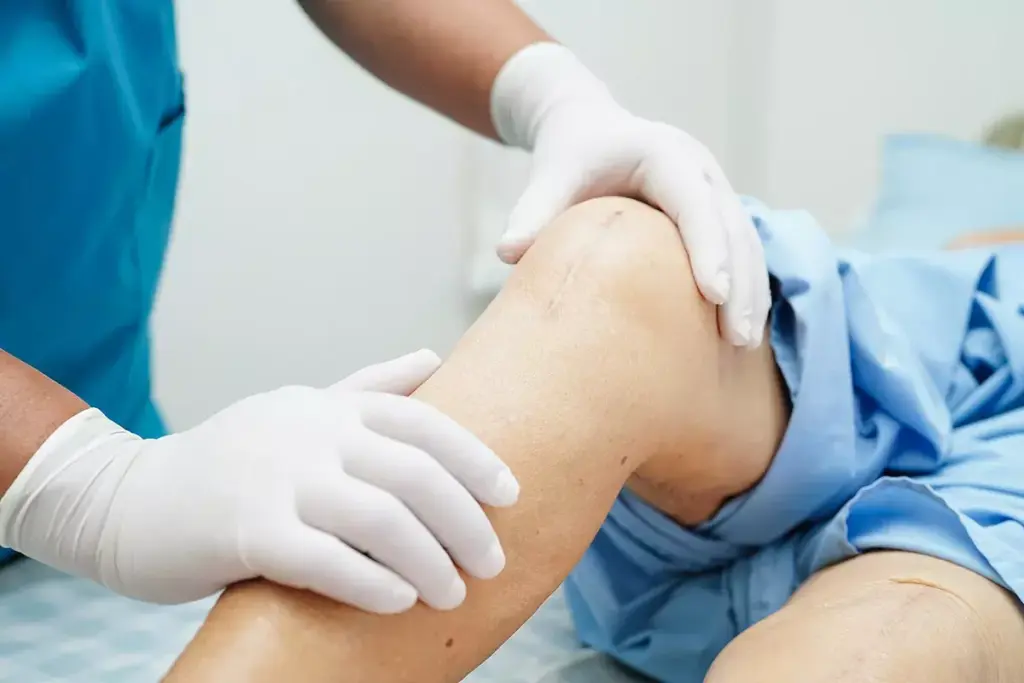What helps cancer patients live longer? A diagnosis of cancer can change your life. But, thanks to new cancer treatment methods, more people are living longer. Knowing what helps patients survive is key for both patients and their families.
Recent studies found that a mix of cancer treatment, lifestyle changes, and other therapies can make a big difference. By taking a whole-body approach to living with cancer, people can face the fight against cancer better.
Key Takeaways
- Conventional cancer treatments play a key role in survival.
- Lifestyle changes can greatly affect how long cancer patients live.
- Other therapies can help alongside traditional treatments.
- Dealing with cancer in a holistic way improves life quality.
- It’s important to understand all cancer treatment options.
Understanding Cancer Survival Rates and Prognosis

It’s important for patients and to know what affects cancer survival rates. These rates help figure out how well a patient might do after being diagnosed with cancer.
Factors That Influence Cancer Survival
Many things can change how long someone might live with cancer. The stage of cancer when it’s found, the type of cancer, and the patient’s health are all important. Early detection is key because it means can start treatment sooner. The treatments used, like surgery, chemo, and radiation, also play a big role in how well a patient does.
Stage2 Cancer Life Expectancy vs. Advanced Stages
The stage of cancer when it’s found greatly affects how long someone might live. Stage 2 cancer is in an early stage and has a better outlook than more advanced stages. Research shows that survival rates change based on the cancer’s stage and type.
Worst Stage of Cancer and Survival Considerations
The term “worst stage of cancer” usually means Stage 4 cancer. This is when cancer has spread to other parts of the body. At this stage, survival chances are complex and depend on many things, like where the cancer started and the patient’s health.
Can You Beat Stage4 Cancer?
Stage 4 cancer is considered advanced, but some people have beaten it with the right treatment. This includes new treatments like targeted therapies and immunotherapies. Whether someone can “beat” Stage 4 cancer depends on their situation.
Knowing these factors helps patients and their families make better choices about treatment and care.
The Role of Conventional Cancer Treatments
Understanding conventional cancer treatments is key for patients. These treatments have been the main way to fight cancer. They offer different ways to tackle the disease.
Surgery, Radiation, and Chemotherapy
Conventional treatments include surgery, radiation, and chemotherapy. Surgery removes tumors. Radiation therapy kills cancer cells with high-energy rays. Chemotherapy uses drugs to target fast-growing cancer cells.
These treatments can be used alone or together. For example, surgery might be followed by chemotherapy or radiation. This ensures all cancer cells are killed.
Targeted Therapies and Immunotherapies
New treatments like targeted therapies and immunotherapies have made a big difference. Targeted therapies target specific molecules in cancer growth. Immunotherapies boost the body’s immune system to fight cancer.
These new treatments have shown great promise. They often have fewer side effects than traditional chemotherapy.
Opdivo and Other Modern Cancer Drugs
Opdivo (nivolumab) is a modern cancer drug that has shown great results. It boosts the body’s immune response against cancer cells.
Other modern drugs target specific genetic mutations or pathways in cancer. These drugs are moving towards more personalized treatment.
Cancer Stem Cells Therapy Approaches
Research on cancer stem cells has led to new treatments. Cancer stem cells are thought to cause cancer to come back and spread.
Therapies targeting these cells aim to prevent cancer from coming back. They aim to eliminate the root cause of the disease.
| Treatment Type | Description | Examples |
| Surgery | Physical removal of tumors | Tumor resection, mastectomy |
| Radiation Therapy | High-energy rays to kill cancer cells | External beam radiation, brachytherapy |
| Chemotherapy | Drugs to target rapidly dividing cells | Doxorubicin, cisplatin |
| Targeted Therapies | Focus on specific molecules involved in cancer growth | Trastuzumab, erlotinib |
| Immunotherapies | Boost the body’s immune system to fight cancer | Opdivo, pembrolizumab |
“I Survived Cancer Without Treatment”: Stories and Considerations
There are amazing stories of people beating cancer without treatment. These tales are fascinating because they show how complex cancer can be. They also highlight the many factors that can affect its growth.
Documented Cases of Spontaneous Remission
Spontaneous remission is when cancer goes away on its own. It’s rare but has been seen in cancers like kidney, skin, and lymphoma. A study found cases where patients got better without treatment, thanks to their immune system.
We don’t know all the reasons behind spontaneous remission. But it might involve the immune system, hormones, and the body’s fight against cancer cells.
Key factors that may contribute to spontaneous remission:
- Immune system activation
- Hormonal influences
- Stress reduction
- Dietary and lifestyle changes
Understanding the Context of Treatment-Free Survival
Treatment-free survival means staying cancer-free without traditional treatments. It’s important for both patients and to understand this. It helps in making treatment plans and caring for cancer patients.
Studies show that care plans should be tailored to each patient. This includes the cancer type, stage, and the patient’s health and lifestyle.
When Conventional Treatment May Be Necessary
Even with cases of spontaneous remission, most cancers need traditional treatment. Deciding on treatment depends on the cancer type, stage, and the patient’s health. It also depends on what the patient wants.
Traditional treatments like surgery, chemo, and radiation work well for many cancers. For advanced cancers, these treatments are key to improving survival chances.
Large Intestine Cancer Stage4: Special Considerations
Colorectal cancer is common and treatable if caught early. But Stage 4 cancer has spread, making treatment harder.
For Stage 4 colorectal cancer, treatments include chemo and targeted therapy. Palliative care also helps manage symptoms and improve life quality.
Some studies look into the benefits of Ashwagandha in cancer treatment. Ashwagandha, used in Ayurveda, may help reduce stress and improve well-being.
Considerations for patients with Stage 4 large intestine cancer:
- Consult with a healthcare provider to determine the best treatment plan.
- Explore complementary therapies that may support conventional treatment.
- Focus on maintaining a healthy lifestyle, including diet and stress management.
Nutrition as a Complementary Approach
Nutrition plays a big role in cancer care. It affects how well treatments work and how patients feel. Eating the right foods can help manage side effects, aid in recovery, and maybe even improve chances of beating cancer.
Best Fruits and Foods for Cancer Patients
Choosing the right foods is key. They give you important nutrients and antioxidants that fight cancer. Here are some top picks:
- Cruciferous vegetables like broccoli and cauliflower, which contain compounds that may help prevent cancer cell growth.
- Berries rich in antioxidants, such as blueberries and raspberries, which can help reduce oxidative stress.
- Leafy greens like spinach and kale, which are rich in vitamins and minerals.
- Fatty fish like salmon, which provide omega-3 fatty acids with anti-inflammatory properties.
Foods to Avoid When You Have Cancer
Some foods can be bad for you when you have cancer. It’s wise to limit or avoid:
- Processed meats, which have been linked to an increased risk of certain cancers.
- Foods high in added sugars, which can lead to weight gain and insulin resistance.
- Charred foods, as charring can produce carcinogenic compounds.
Should Cancer Patients Avoid Sugar and Carbs?
The debate on sugar and carbs in cancer diets is ongoing. You don’t need to cut them out completely. But being careful with how much you eat is smart. Cancer cells use glucose for energy, but so do healthy cells. Eating whole, unprocessed foods helps manage carbs better.
| Food Group | Recommended Foods | Foods to Limit or Avoid |
| Fruits | Berries, citrus fruits, apples | Fruits canned in syrup, fruit juices with added sugars |
| Vegetables | Cruciferous vegetables, leafy greens, carrots | Starchy vegetables like potatoes, if fried |
| Proteins | Lean meats, fish, eggs, legumes | Processed meats, charred meats |
By making smart food choices, cancer patients can help their treatment plans. It’s always a good idea to talk to a healthcare provider or a registered dietitian to get a diet plan that’s just right for you.
Plant-Based Diets and Cancer Survival
Research shows that plant-based diets can help improve cancer survival rates. These diets focus on eating foods from plants like fruits, veggies, whole grains, and legumes. They also cut down or remove animal products.
Research on Plant-Based Diets and Cancer Outcomes
Many studies have looked into how plant-based diets affect cancer. They found these diets can lead to better survival rates and lower cancer risk. This is because plant foods are full of antioxidants, fiber, and other nutrients.
Key findings include:
- Reduced inflammation and oxidative stress
- Improved immune function
- Enhanced overall nutritional intake
How to Implement a Plant-Based Diet During Cancer Treatment
Starting a plant-based diet during cancer treatment needs careful planning. It’s important to eat a variety of plant-based foods to get all the nutrients you need.
Tips for implementation:
- Consult with a healthcare provider or a registered dietitian
- Emphasize whole, minimally processed foods
- Consider nutritional supplements if necessary
Drinking Carrot Juice for Cancer: Benefits and Evidence
Carrot juice is being studied for its benefits in cancer care. It’s packed with antioxidants like beta-carotene, which can help reduce oxidative stress and support health.
Some studies show that carrot juice’s antioxidants may help manage cancer symptoms and support treatments. But, more research is needed to fully grasp its effects.
What to Eat to Stop Cancer Progression
Along with a plant-based diet, eating certain foods can help stop or slow cancer growth. Foods high in antioxidants, fiber, and nutrients are best.
Recommended foods include:
- Leafy greens like spinach and kale
- Cruciferous vegetables such as broccoli and cauliflower
- Berries and other fruits high in antioxidants
- Legumes and whole grains for fiber and protein
Eating these foods in a plant-based diet can help improve cancer outcomes and overall health.
Fasting Protocols and Cancer Treatment
Fasting is now seen as a way to help fight cancer. It’s not a new idea, but it’s getting more attention in cancer care. This is because research is showing it might help.
Intermittent Fasting and Cancer Research
Intermittent fasting, or IF, means eating and fasting in cycles. It’s being studied for its anti-cancer effects. Research shows it can slow cancer cell growth and boost the immune system.
Studies also show IF can make cancer treatments work better. It can reduce side effects and slow cancer growth.
Fasting and Cancer Success Stories
Many cancer patients have tried fasting as part of their treatment. Some have seen good results. These stories suggest fasting can help with traditional treatments.
For example, some patients have felt less sick from chemotherapy. They also felt better overall when fasting.
Safety Considerations for Fasting During Cancer Treatment
Fasting can be helpful, but it’s not safe for everyone, like cancer patients. It can cause malnutrition and weakness. It’s important to be careful.
Before starting a fast, talk to your. They can help make sure it’s safe for you.
Bone Broth and Cancer: Fasting Support Options
If you’re fasting or eating less during cancer treatment, eating nutrient-rich foods is key. Bone broth is a good choice. It has proteins, minerals, and electrolytes.
| Nutrient | Benefit |
| Protein | Supports muscle health |
| Collagen | May aid in healing and reducing inflammation |
| Minerals (e.g., Calcium, Magnesium) | Essential for overall health and bodily functions |
Drinking bone broth during fasts can help avoid nutrient shortages. It’s a good choice for staying healthy.
Supplements and Natural Compounds for Cancer Support
Supplements and natural compounds can help cancer patients. They have gained attention for their benefits and risks. Studies are exploring their effects.
Cancer-Fighting Supplements: Evidence and Caution
These supplements include vitamins, minerals, and herbal extracts. They may boost treatment effects or lessen side effects.
Examples of Cancer-Fighting Supplements:
- Vitamin D: Important for bone health and potentially beneficial in cancer prevention.
- Omega-3 fatty acids: May help reduce inflammation and support overall health.
- Turmeric/Curcumin: Known for its anti-inflammatory properties.
Using these supplements requires caution. They can interact with treatments or cause harm in some cases.
| Supplement | Potential Benefit | Precaution |
| Vitamin D | May improve survival rates | Risk of toxicity with high doses |
| Omega-3 fatty acids | Reduces inflammation | May interact with blood thinners |
| Turmeric/Curcumin | Anti-inflammatory properties | Potential gastrointestinal side effects |
Herbs with Potencial Anti-Cancer Properties
Certain herbs may fight cancer. These include:
- Mistletoe: Some studies suggest it may improve survival and quality of life.
- Green Tea: Contains antioxidants that may help prevent cancer.
- Ginger: May help reduce nausea associated with cancer treatment.
Natural Herbs for Cancer: Traditional Uses and Modern Research
Many herbs have been used to help with cancer. Modern research is finding out how they work.
Mistletoe has been used in traditional medicine. Modern studies show it may boost the immune system in cancer patients.
Before adding supplements or herbs, talk to a healthcare professional. This ensures they are safe and effective.
Alternative Therapies in Cancer Care
Alternative therapies are gaining attention in cancer care. They offer new ways to help patients. These methods aim to improve treatment results and quality of life.
Hyperbaric Oxygen Therapy for Cancer
Hyperbaric oxygen therapy involves breathing pure oxygen in a pressurized room. Studies show it can boost the effects of radiation therapy. It also helps reduce side effects.
Benefits of Hyperbaric Oxygen Therapy:
- Improved wound healing
- Reduced radiation-induced tissue damage
- Enhanced immune function
Ozone Therapy Cancer Applications
Ozone therapy uses ozone gas to fight cancer. It’s thought to kill cancer cells and boost the immune system.
“Ozone therapy has been shown to have immunomodulatory effects, potentially making the body stronger against cancer.” Cancer Researcher
PEMF (Pulsed Electromagnetic Field) and Cancer
PEMF therapy uses electromagnetic fields on the body. Some research shows it can ease cancer symptoms and improve well-being.
| Therapy | Potential Benefits |
| PEMF | Reduced pain and inflammation, improved sleep |
| Hyperbaric Oxygen | Enhanced radiation therapy effectiveness, improved wound healing |
| Ozone Therapy | Potential anti-cancer effects, immunomodulation |
DMSO for Cancer: Claims vs. Evidence
DMSO (Dimethyl Sulfoxide) is used for many health issues, including cancer. Some say it fights cancer, but the proof is mostly from stories. More research is needed to confirm these claims.
It’s important for patients to talk to their before trying alternative therapies.
The Immune System’s Role in Fighting Cancer
Understanding how the immune system fights cancer is key to better treatments. Our immune system is our body’s defense against cancer. It can spot and kill cancer cells. But, cancer cells can sometimes hide from the immune system, causing tumors to grow.
How Immunity and Cancer Interact
The battle between immunity and cancer is complex. The immune system can fight tumors by attacking cancer cells. But, cancer cells can avoid detection by using special molecules. This makes it hard for the immune system to keep tumors in check.
Natural Ways to Boost Immunity During Cancer Treatment
There are natural ways to boost immunity during treatment. Eating foods rich in antioxidants and omega-3 fatty acids helps. Regular exercise and managing stress are also important. Always talk to your before trying new supplements or changing your diet or exercise routine.
Some natural ways to boost immunity include:
- Eating a balanced diet rich in fruits, vegetables, and whole grains
- Staying hydrated by drinking plenty of water
- Engaging in regular physical activity
- Getting adequate sleep
- Managing stress through techniques like meditation or yoga
Can Antioxidants Prevent Cancer?
Antioxidants protect cells from damage that can lead to cancer. While they can’t prevent cancer, a diet full of antioxidants may lower the risk. Foods like berries and leafy greens are rich in antioxidants. But, taking antioxidant supplements in high doses is not recommended.
“A diet rich in fruits, vegetables, and whole grains can provide essential antioxidants and help support overall health,” according to nutritional experts.
MCT Oil and Cancer: Metabolic Considerations
MCT oil, from coconut oil, is studied for its benefits in cancer treatment. It’s thought that cancer cells can’t use ketones as well as normal cells. Some research shows MCT oil may help patients during treatment. But, more studies are needed to understand its effects fully.
In conclusion, the immune system is vital in fighting cancer. Understanding how it works with cancer cells is key to better treatments. By exploring natural immunity boosters, antioxidants, and MCT oil, we can create better care plans for patients.
The Alkaline Approach to Cancer Management
Many people think an alkaline environment can fight cancer. They believe changing the body’s pH levels can stop cancer cells from growing. This idea has made the alkaline approach popular.
Can Cancer Live in an Alkaline Environment?
Cancer cells grow best in acidic places. An alkaline diet might help by making the body less acidic. No disease, including cancer, can exist in an alkaline environment. This idea has made people interested in alkaline diets.
Research shows cancer cells struggle in alkaline conditions. For example, a study in the Journal of Nutrition and Cancer found an alkaline diet can lower cancer risk.
Apple Cider Vinegar and Cancer: Claims vs. Evidence
Apple cider vinegar is known for its health benefits, including fighting cancer. Some say it makes the body alkaline and stops cancer cells. But, there’s not much scientific proof for this.
Some studies suggest apple cider vinegar might fight cancer. But, we need more research. Cancer patients should talk to their before using it.
Alkaline Diet Strategies for Cancer Patients
An alkaline diet includes foods that make the body alkaline. It’s all about eating fruits, veggies, and whole grains. Focus on leafy greens, citrus fruits, and nuts and seeds.
- Leafy greens like spinach and kale
- Citrus fruits such as lemons and oranges
- Alkaline-rich nuts and seeds like almonds and chia seeds
Avoid acidic foods like processed meats, dairy, and sweets.
Scientific Perspective on pH and Cancer
Scientists are studying how pH levels affect cancer. Some research suggests an alkaline environment can slow cancer growth. But, the proof is not solid yet.
“The relationship between diet-induced acidity and cancer development is complex and multifactorial.”
We need more studies to understand the alkaline approach’s benefits and limits in fighting cancer.
Lifestyle Factors That May Improve Cancer Outcomes
Changing your lifestyle can greatly improve life quality and outcomes for cancer patients. Adding healthy habits to your daily routine can help your prognosis and well-being.
Exercise and Physical Activity for Cancer Patients
Exercise and physical activity are key for cancer patients. They can lower the risk of cancer coming back and improve survival chances. Moderate-intensity exercise, like brisk walking, cycling, or swimming, is best for at least 150 minutes a week.
- Aerobic exercises like walking, jogging, or cycling can improve heart health.
- Resistance training helps keep muscle mass and strength up.
- Flexibility exercises, such as yoga or Pilates, boost flexibility and reduce stress.
Stress Management Techniques
Managing stress is critical for cancer patients. Chronic stress can harm the immune system and health. Techniques like meditation, deep breathing exercises, and yoga can help manage stress.
- Mindfulness meditation can lower anxiety and improve mood.
- Deep breathing exercises calm the mind and body.
- Yoga combines physical movement with deep breathing, improving overall well-being.
Sleep Quality and Cancer Recovery
Good sleep is key for cancer recovery. It helps the body repair and rejuvenate. A consistent sleep schedule and a sleep-friendly environment can improve sleep quality.
- Avoiding caffeine and electronics before bed helps sleep.
- A dark, quiet sleep environment enhances sleep quality.
- Relaxation techniques, like reading or soothing music, prepare the body for sleep.
Living with Cancer: Day-to-Day Strategies
Living with cancer needs a holistic approach. This includes medical treatment, lifestyle changes, and emotional support. Adopting strategies that promote well-being can improve life quality for cancer patients.
Some key strategies include:
- Eating a balanced diet with fruits, vegetables, and whole grains.
- Drinking plenty of water to stay hydrated.
- Doing activities that bring joy and fulfillment.
By adding these lifestyle factors to their daily lives, cancer patients can potentially improve their outcomes and quality of life.
Early Detection and Prevention Strategies
Prevention and early detection are key in fighting cancer. By knowing and using these strategies, people can lower their cancer risk. They can also have better treatment chances if they get cancer.
How to Catch Cancer Early
Early cancer detection needs awareness, screenings, and visits. Knowing your body and telling your about any odd changes is important. Tests like mammograms for breast cancer and colonoscopies for colon cancer can find cancer early.
Screening Recommendations by Cancer Type
Each cancer type has its own screening advice. For example, women should get yearly mammograms for breast cancer starting at 45. For colon cancer, screenings start at 45 for both men and women. It’s key to know these guidelines and talk to your about them.
How Can You Avoid Cancer?
To avoid cancer, you need to make lifestyle changes and stay away from harmful substances. Not smoking, keeping a healthy weight, and avoiding too much sun are good steps. These actions can help lower your cancer risk.
Foods to Eat to Avoid Cancer
Eating right is important for cancer prevention. Eating lots of fruits, veggies, and whole grains is good. Foods like broccoli and cauliflower might help fight cancer too. Places like Hope a Women’s Cancer Center stress the role of food in preventing and managing cancer.
Emotional and Psychological Support for Cancer Patients
Cancer diagnosis can be very tough, making emotional and psychological support key for patients. It helps their well-being and can even affect their cancer outcomes.
Battling Cancer: Mental Health Strategies
Mental health strategies are important for cancer patients. They help deal with the diagnosis and treatment. These include counseling, meditation, and stress management.
Support Groups and Resources
Support groups let cancer patients share their stories and connect with others. Places like Hope: A Women’s Cancer Center offer great resources and support.
Inspiration from Young Celebrities with Cancer
Young celebrities with cancer, like actors and musicians, inspire others. They use their fame to raise awareness and give hope to patients.
Emotional and psychological support is essential for cancer patients. It improves their life quality and can help their cancer outcomes. Using mental health strategies, support groups, and inspiring stories helps patients on their cancer journey.
FAQ
What is the life expectancy for someone with stage 2 cancer?
The life expectancy for stage 2 cancer patients varies. It depends on the cancer type, health, and treatment. Many stage 2 cancer patients can live for many years with the right treatment.
Can you beat stage 4 cancer?
Yes, some stage 4 cancer patients have overcome their disease. They used conventional treatments, changed their lifestyle, and tried alternative therapies.
What are the best fruits for cancer patients?
Berries, citrus fruits, and apples are good for cancer patients. They are full of antioxidants. Carrot juice also has benefits.
How can you avoid cancer?
A healthy lifestyle is key. Eat well, exercise, and manage stress. Screening and early detection are also important.
Can antioxidants prevent cancer?
Antioxidants might help fight cancer, but the proof is not solid. Eating a balanced diet with antioxidants and living healthy can lower cancer risk.
What is the role of ashwagandha in cancer treatment?
Ashwagandha might help fight cancer, but more research is needed. It’s an herb with possible anti-cancer properties.
Can cancer live in an alkaline environment?
Some think an alkaline body pH can stop cancer cells. But, the science is limited. More research is needed.
What is the significance of bone broth in cancer treatment?
Bone broth is used during fasting. It provides important nutrients when you’re not eating.
How can lifestyle factors impact cancer outcomes?
A healthy lifestyle improves cancer outcomes. Regular exercise, stress management, and good sleep are key.
What is the importance of emotional and psychological support for cancer patients?
Emotional and psychological support is vital. Support groups and mental health strategies help cancer patients cope with their diagnosis and treatment.










